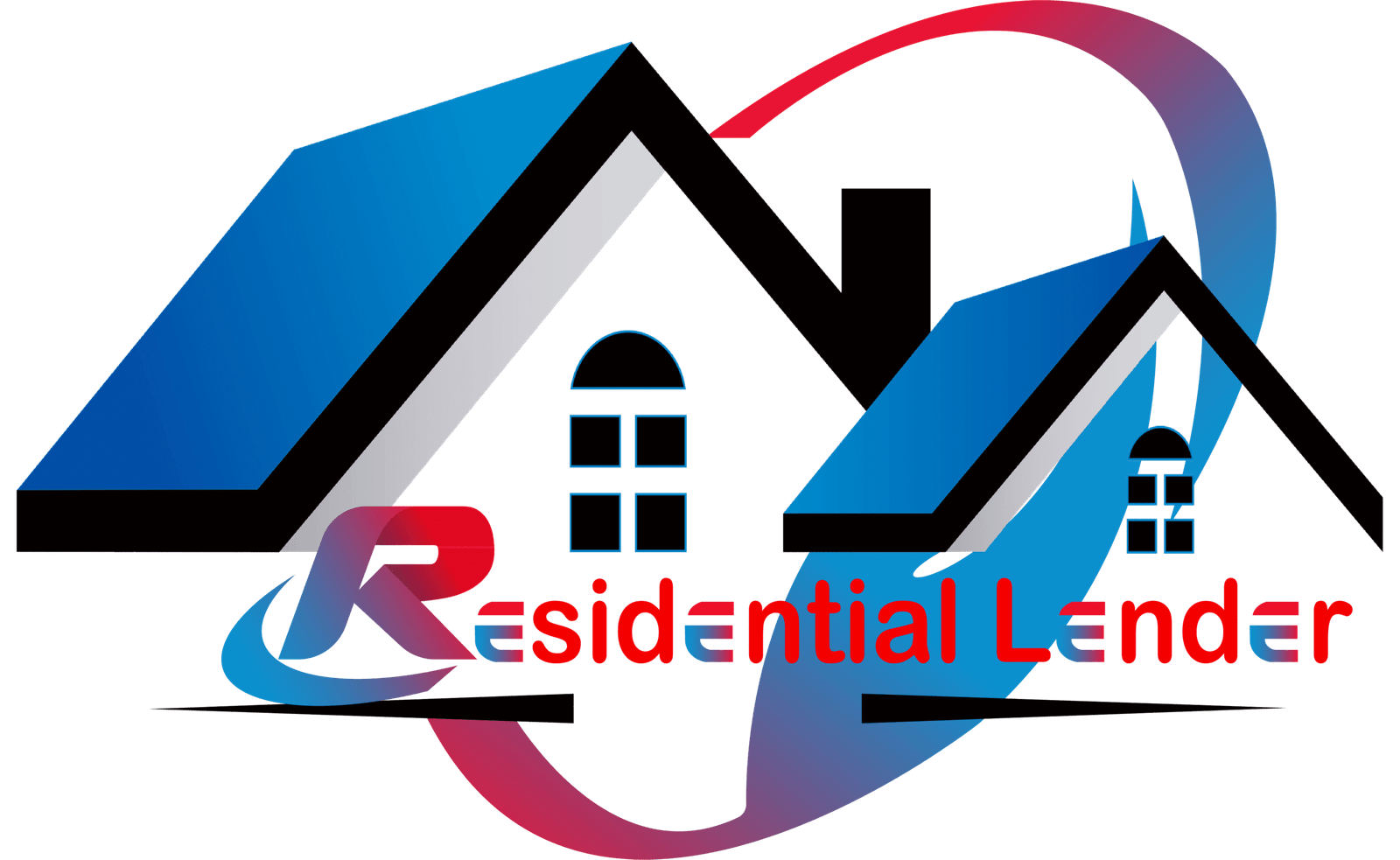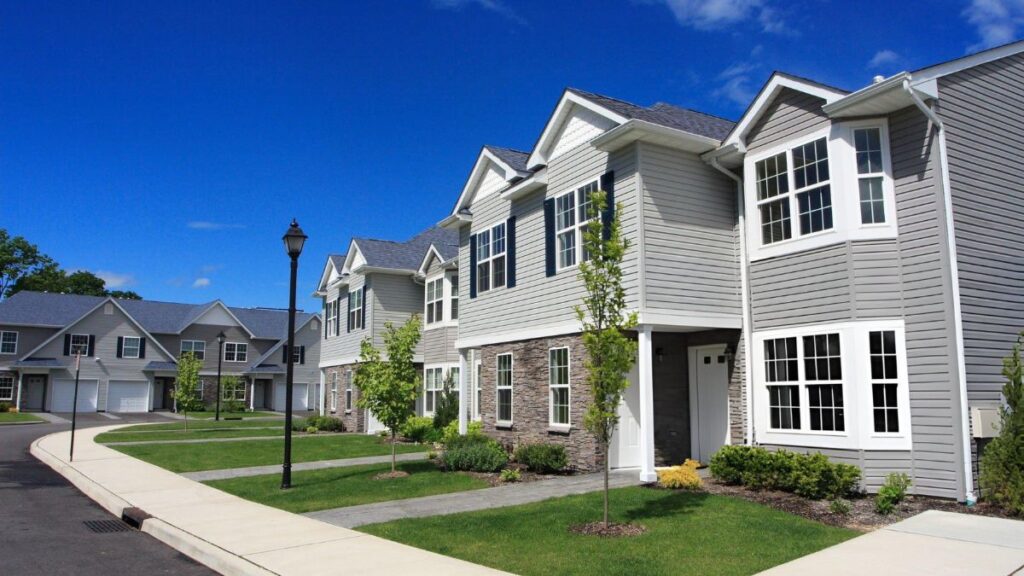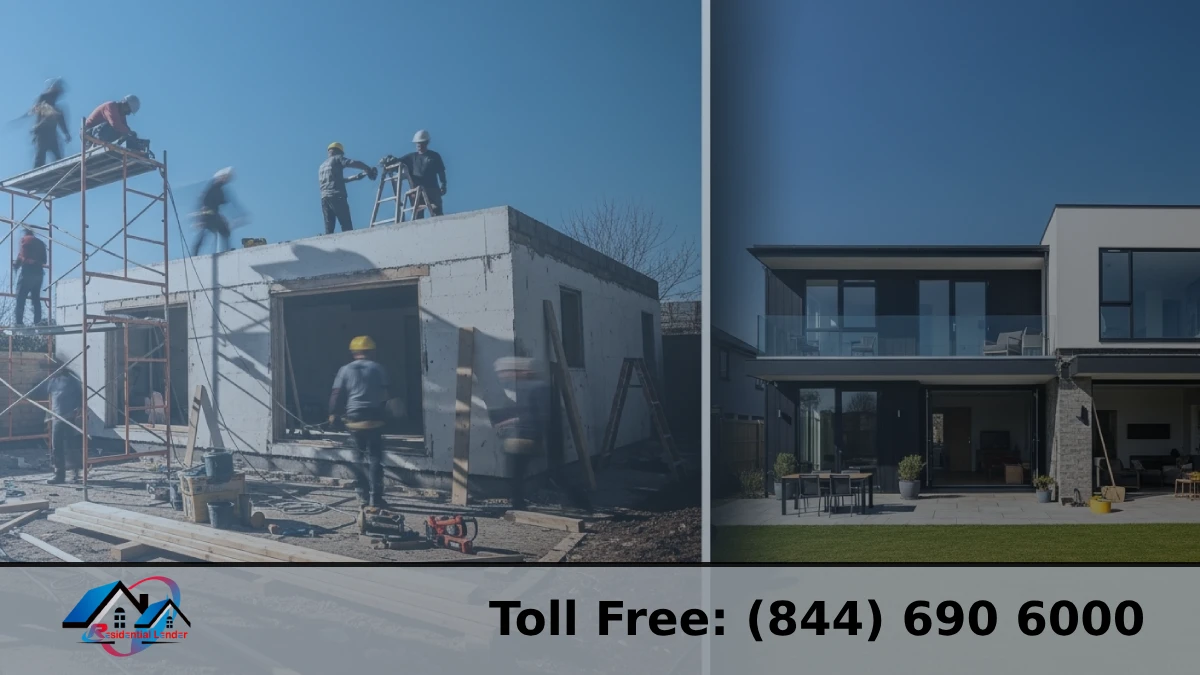If you want to learn to invest in real estate like a pro, this blog has everything you need to know. For people to make intelligent decisions, it tells them everything they need to know about the process. People can make a lot of money in private real estate because they can rent their homes, and their value will increase over time. Individuals who require borrowing funds can contact lenders who run companies that can earn them money through ResidentialLender.net. However, the guide has valuable information for all kinds of properties. Anyone wanting to invest in real estate can use this book, no matter how experienced or new they are.
Learning How to Invest in Residential Real Estate
For starters, let’s lay the groundwork. When you deal in residential real estate, you buy homes to rent them out and make money. These homes are not your primary residence; they are meant to be rented to people who will regularly pay your rent.
The Most Important Difference: Residential vs. Commercial
The main difference between investing in residential and business real estate is the type of property you must deal with. Single-family homes, duplexes, condos, and small apartment buildings are all residential units. On the other hand, commercial sites include warehouses, office buildings, shopping malls, and factories.
What Draws People to Invest
Then why would you choose private real estate? If you want to buy, here are some of the main reasons why:
Cash Flow: Rental income gives you a steady cash flow, making it a private income source you can use in addition to your primary income.
Value Growth: The value of residential homes tends to rise over time. In the future, you can sell the house for more than you paid.
Diversification: Putting money into real estate helps spread your risk across different types of assets, lessening the effect of stock market changes.
Picking an Investment Property: A Type-by-Type Guide
Now that you know the basics, let’s look at the different kinds of homes that can be used as investments:
Multifamily dwellings
Such as duplexes, triplexes, and apartment buildings.
Pros
- Multiple Income Streams: Renting from numerous units can mean higher overall income.
- Economies of Scale: Units can share amenities and upkeep costs, making things run more smoothly.
- Long-Term Appreciation: In growing places, more prominent buildings increase in value.
Cons
- Higher Investment: Buying a property with more than one lot usually costs more initially.
- More work to do: managing multiple renters can take a lot of time.
- Risks of vacancies: empty units can significantly affect your cash flow.
Homes with only one family
Pros
- One-family homes are often more affordable than multi-unit properties.
- They are also easier to manage because you only have one tenant. There is a strong demand for them.
Cons
- Rental income is limited to one unit, and vacancies can significantly affect overall revenue.
- Fewer economies of scale may exist because maintenance costs are not split between multiple units.
Houses in towns
Pros
- Balance Between Options: Offers a middle ground regarding investment and income.
- Lower Maintenance: Shared walls can mean that each person is responsible for less upkeep.
- Strong Community Appeal: Townhouses are a good choice for people who want to live in a community.
Cons
- Potential HOA Fees: Homeowner association fees can increase monthly costs.
- Limited Control Over Exteriors: Less control over changes made to the outside of the building.
- Shared Wall Noise Concerns: Tenants may be more sensitive to noise from units nearby.
You can make an intelligent choice that fits your long-term plan if you carefully think about the pros and cons of each property type, as well as your investment goals and budget.
How to Get the Money You Need to Invest in Homes: How to Finance Your Trip
Getting financing is a crucial step in investing in private real estate. We’ll help you find your way through the world of lenders and loan choices here.
Traditional Lenders vs. Correspondent Lenders
Old-fashioned lenders: These are banks or credit unions, and each has its own rules for loans and how they decide who gets them. You are going to apply straight to them.
Correspondent Lenders: Because they work with banks and other financial companies, these lenders can offer more loan types and maybe even better rates. For example, Residentiallender.net is a correspondent lender that connects you with many lenders.
The Superbroker Advantage: Making the Process Easier
Right here is where residentiallender.net shines as a superbroker. We work with several lenders on your account and are your only point of contact. This saves you time and effort because you don’t have to talk to each provider separately. We use our strong network of connections and in-depth market knowledge to find you the best loan choice for your needs.
How Important It Is to Have Experts in-House Underwriting
It is essential that loan handling be quick and easy. Residentiallender.net has a team of experienced lenders who can quickly and carefully review your application. With this in-house knowledge, the approval process goes faster, so you can move forward with your business without any unnecessary delays.
Options for loans to help you fund your investment
We at residentiallender.net know there is no standard way to do real estate. We offer a range of loan choices to help you reach your investment goals:
- Conventional Loans: These are the standard investment property loans with reasonable rates and terms.
- FHA Multi-Family Loans: These government-backed loans are outstanding for financing multi-unit properties with a lower down payment requirement.
- Bridge Loans: Those loans are short-term loans that help you buy and sell properties.
This is “Beyond the Basics” for residentiallender.net:
People at residentiallender.net know that sometimes your regular need don’t meet your wants. That’s why we also have loan plans just for you, such as
DSCR (Debt Service Coverage Ratio) Loans: Focus on the property’s cash flow to qualify, making them suitable for investors with lower credit scores.
Hard Money Loans: These short-term loans can help you get money quickly, but the interest rates may be higher.
Remember that this isn’t a complete list; you should talk to a residentiallender.net loan expert about your situation to find the best way to finance your residential real estate investment.
Read More: DSCR Loan Requirements
Step-by-Step Guide to Residential Real Estate Investment
Making a Plan: Setting Goals for Your Investments
You must be clear on your financial goals before jumping into the market. Knowing your long-term goals will help you choose a home and figure out how to pay for it.
Short-Term vs. Long-Term Attention: Appreciation or Cash Flow?
- Focused on cash flow: If your main goal is to make a steady cash stream, you’ll look for properties with high rental yields. It might work well with single-family homes or smaller buildings with several units.
- Focused on appreciation: Appreciation potential becomes very important for investors who want long-term cash gains. Put your money into places on the rise or properties that can be fixed up.
Keeping Risk and Reward in Check
Any purchase, including real estate, comes with risks. How much danger you are willing to take will affect your chosen properties. Are you okay with a more considerable original investment that could yield a more significant return (for example, multi-unit buildings)? Or would you instead take a less risky route with a single-family home and a more stable source of income?
The investment budget is the basis for success.
Knowing your budget helps you set reasonable goals and narrow your property search. Think about the purchase price, the closing costs, the possible costs of repairs, the ongoing costs of upkeep, and the property taxes.
If you’re clear on your goals, how much risk you’re willing to take, and your budget, you can make intelligent choices to help you reach your real estate investment goals.
Unearthing Opportunities: Researching the Market for Success
Once you know what you want to invest in, it’s time to do some market research. A thorough analysis will help you find profitable opportunities and make intelligent choices.
Area, Place, Surroundings
- Target the Right Area: Choose a place that fits your financial goals. Demographics, job market growth, and distance to services are some things to consider.
- Property Type in Focus: Once you’ve found a good location, study the type of property that fits your plan. Look at the demand for rental homes in your goal area, whether single-family homes, multi-unit buildings, or townhouses.
Rental Income Potential and Vacancy Rates
- Projecting Rental Income: Find the average rental rates for the type of home you want in the area you want to live in. This will help you determine how much money your investment might bring in.
- Vacancy Rate Reality: Vacancy rates show how often rental homes are empty. Knowing your target market’s past and present vacancy rates will help determine how much money you might lose because of openings.
Property Value and Appreciation Trends
- Value Insights: Find out about recent home sales and property prices in your target area. This will give you an idea of how much your chosen type of property is worth on the market right now.
- Appreciation Potential: Look at how prices have changed over time in the area you want to buy. Even though past performance doesn’t mean that future performance will be the same, it can give you an idea of how your investment might grow over time.
Selecting Your Investment Property: Transforming Research into Action
Now that you know the market, you can start the exciting process of finding the right investment property. At this time, you must carefully consider several different factors to find a property that will offer good long-term value and income potential.
Location Reigns Supreme
- Double Down on Your Research: Once you know where you want to live, you can look deeper to find popular neighborhoods. If you rent to families, look for places with low crime rates, good schools, and easy access to amenities.
- Future Considerations: Think about the future. Is there an increase in jobs in the area? Are there any future infrastructure projects that could make the area less desirable? Investing in a neighborhood on the rise can help your home’s value go up the most.
Condition Counts
- Move-in Ready or Renovation Project? Check out the property’s state. Is it ready to move into, or does it need work? When considering the general investment, remember to include the cost of repairs.
- Long-Term Maintenance: To avoid many headaches with ongoing upkeep, look for homes with good bones and a solid foundation.
Figuring Out What Tenants Want
- Matching Property to People: Ensure that the people in the area will likely rent your chosen home. Are you trying to sell to young professionals? If so, a modern apartment might be a good choice. Think about families. A house with a backyard would look better.
Potential Repairs: Factoring in Costs
- Don’t Underestimate Repairs; Think about possible fixes. When figuring out how much the property is worth generally, you should include the cost of repairs. It can be helpful to get a skilled opinion from a contractor.
Finding the Right Property: Resources at Your Disposal
- Take advantage of real estate agents: Working with an experienced agent specializing in investment homes can be very helpful. They can help you find suitable properties, bargain well on your behalf, and give you useful information about the local market.
By carefully considering these factors and using the resources you have access to, you should be able to find an investment property that brings in good rental income, reduces the risk of vacancies, and increases in value over time.
Locking in Your Success: Securing Financing for Your Investment
You know what you want, have studied the market, and found the perfect home. Now it’s time to get the money you need to make your real estate dreams come true.
Pre-Qualification: A Crucial First Step
Get pre-approved for a loan at residentiallender.net before you start looking for homes. Pre-qualification tells you how much of a loan you can get based on their information about your finances. This lets you narrow your search for a home to those that fit your price.
Partnering with residentiallender.net: Your Superbroker Advantage
We know what residentiallender.net needs so that we can give it to investors in residential real estate. Together with you, our team of experts will:
- Analyze Your Investment Goals and Budget: We’ll take the time to learn about your goals and budget to suggest the best loan choices for you.
- Explore Financing Options: We have different kinds of loans, like standard, FHA multi-family, bridge, DSCR, and hard money loans. We’ll go over the pros and cons of each choice so that you can pick the loan that fits your investment plan the best.
- Streamline the Loan Approval Process: The people who work for us in underwriting have a lot of experience handling loans for rental homes. This means the loan acceptance process will go faster and more smoothly, so you can move quickly to your dream home.
Benefits of Working with a Superbroker
By partnering with residentiallender.net, you gain access to:
- A Wider Range of Loan Options: You have more options to find the best rates and terms for your case because we work with an extensive network of lenders.
- Expert Guidance: Our skilled loan officers will walk you through each step of the loan process, ensuring it goes smoothly and without any stress.
- Advocacy Throughout the Process: We seek your best interests and negotiate to get you the best loan terms possible.
Taking Action: Get Pre-Qualified Today!
Do not wait! Get pre-approved for a loan right now by going to residentiallender.net. You can be sure that this powerful tool will help you find properties that fit your business goals and budget. With our help and your drive, you’ll be well on your way to making money investing in real estate!
Sealing the Deal: Negotiation Strategies and Closing the Purchase
Excellent work! We’ve found the perfect rental property for you and ensured you can get a loan. Now is the time to make an offer and go through the closing process to ensure you own the property.
Crafting a Winning Offer
- Understanding Market Value: To find out what the property is worth, look into recent sales of similar homes in the area. This is what your deal will be built on.
- Considering Repairs: Include any repairs or improvements needed when making your offer. You could offer less than the asking price to account for these possible costs.
- Negotiation Strategies: You should be ready to negotiate! Make a solid first offer, but be open to changes and prepared to give in on some things, like closing costs or repair credits.
Working with Your Agent
- Agent Expertise: When you work with a real estate agent, use their knowledge and ability to negotiate to make a solid offer to the seller.
- Considering Seller Motivations: Talk to your adviser about why the seller wants to sell. Are they in a hurry or ready to work out a deal for a quick close? Knowing what they want can help you negotiate with them.
The Closing Process: From Offer to Ownership
The closing process starts as soon as your offer is accepted. Usually, there are several steps to this:
- Formalizing the Agreement: There will be a written agreement for the sale that spells out all the essential details, like the final price, the date the deal closes, and any possible problems that might come up.
- Home Inspection and Appraisal: There will be a professional home inspection to find any problems that might be there with the house. There will also be an appraisal to ensure the property’s worth.
- Loan Approval and Underwriting: Your lender will finish the approval process by reviewing your financial papers and the appraisal of your home.
- Closing Day: You’ll sign all the last papers, get your loan money, and become the proud owner of your investment property on closing day!
Paperwork and Important Documents
You can expect to review and sign a lot of paperwork during the closing process. This includes the loan, the buy contract, the title insurance, and the closing disclosures. Before you sign anything, please read it carefully and ask your agent or a lawyer any questions.
Congratulations, Property Owner!
If you do these things and work with a real estate agent and lender who knows what they’re doing, you should be able to close on your rental property soon. This is an exciting first step toward your long-term financial goals and building your real estate business.
Building Wealth Through Ownership: Managing Your Investment Property
We appreciate you for becoming a proud property owner! Now that the deal is done, it’s time to turn your attention to property care. Good management ensures that your investment keeps making money, increases value, and doesn’t cause problems.
The Power of Property Management
You can take care of your property yourself, but you can work with a professional property management company. They can do many things, such as:
- Tenant Screening: Careful rental screening is essential. Property management companies know how to check renters’ income, run background checks, and choose good tenants who are more likely to pay their rent on time and take care of your property.
- Rent Collection: Let a property management business collect rent to simplify the process. They can use technology to collect rent, follow up on late payments, and ensure they have steady cash coming in.
- Maintenance and Repairs: Property management firms have a network of trustworthy workers they can call on for repairs and upkeep. They can take care of problems quickly, keep your property’s value high, and keep tenants from leaving.
Budgeting for Ongoing Expenses
There are ongoing costs that come with owning an investment home. When making a budget, think about the following:
- Property Taxes: Find out how much property taxes are in your area and add that to your monthly or yearly running costs.
- Repairs and Maintenance: Plan for routine upkeep and fixes coming out of the blue. Set aside money to fix your roof, replace some appliances, or restore your pipes.
- Property Insurance: It is necessary to have enough home insurance. In the event of a fire, damage, or a natural disaster, this will protect your property.
Legal Considerations and Local Regulations
You must follow specific laws and rules in your area as an owner. Learn about your local fair housing rules, tenant rights, and how to get out of a rental agreement. A property management business can help you follow the rules in your area and stay out of trouble with the law.
You can ensure your investment property runs efficiently, brings in a steady income, and increases in value over time by working with a professional property management company and knowing your legal obligations.
Good luck as you start your journey as a real estate owner! This guide has given you the information and steps to get through the process, from setting goals to finishing the deal and becoming a happy property owner. Remember that residentiallender.net is here to help you with your business journey. Get in touch with us right away to talk about your financing choices and discover the exciting possibilities of buying a home!
Congratulations! You’ve Taken the First Step to Building Wealth Through Residential Real Estate!
With the information and tools in this complete guide, you can enter the exciting world of investing in home real estate. We’ve helped you with every step, from setting goals and studying the market to finding the right property and getting financing.
Key Takeaways
- Investment Options: Look at single-family homes, apartment buildings with multiple units, and condos. Each has its pros and cons.
- Financing Strategies: If you work with a super broker like residentiallender.net, you can access more loan choices and the best rates for your investment goals.
- Market Research: The place is essential! Doing a lot of research will help you find good neighborhoods that people want to rent, which could increase in value.
- Property Management: If you want to make sure your investment goes smoothly, you should work with a property management company to help you find tenants, collect rent, and do repairs.
The Allure of Residential Real Estate Investment
Investing in residential real estate is a great way to build wealth over the long run. To quickly review the perks, here they are:
- Passive Income Generation: Rental income gives you a steady run of cash and helps your primary source of income.
- Appreciation Potential: Properties gain value over time, meaning you can make money when you sell.
- Portfolio Diversification: When you buy real estate, you spread out your risk and lessen the effect of changes in the stock market.
Ready to Unlock Your Real Estate Investment Potential?
Do not wait! To set up a meeting with a residential investment expert, visit residentiallender.net right now. Our team of professionals will help you set business goals, look into different financing options, and find your way to success in the exciting world of real estate for homes!
FAQs
What is a residential real estate investment?
Investing in residential real estate means buying homes to rent and make money. These homes are only part of your home; they’re intended to be rented out to people who usually pay you rent.
What are the benefits of residential real estate investment?
There are many advantages, such as:
- Generating passive income: Rent money is a steady source of cash flow.
- Appreciation potential: Over time, properties tend to gain value.
- Diversifying your portfolio: Adding real estate to your investments spreads your risk.
What is the difference between a traditional lender and a correspondent lender?
Traditional lenders give out loans directly, but correspondent lenders work with a network of banks and investors to offer a broader range of loan products and possibly better rates.
What is a superbroker?
A great broker, such as residentiallender.net, fights for you through the loan process. Because they have ties with many lenders, they can find you the best loan option with the best terms.
What are the different types of residential investment properties?
There are several choices, such as:
- Single-family homes have a lower entry barrier and are easier to handle, but they offer less income potential.
- Multi-family homes, like duplexes, triplexes, and apartment buildings, offer more ways to make money and economies of scale. Still, they also need more money and care.
- Townhouses are a good investment and a way to make money because they require less upkeep but may have HOA fees.
What is the importance of property management?
Property management companies can find suitable tenants, collect rent, and fix broken things. This makes investing easy and stress-free.
What ongoing expenses should I budget for?
Some of these are property taxes, repairs and care, and insurance for your home.








